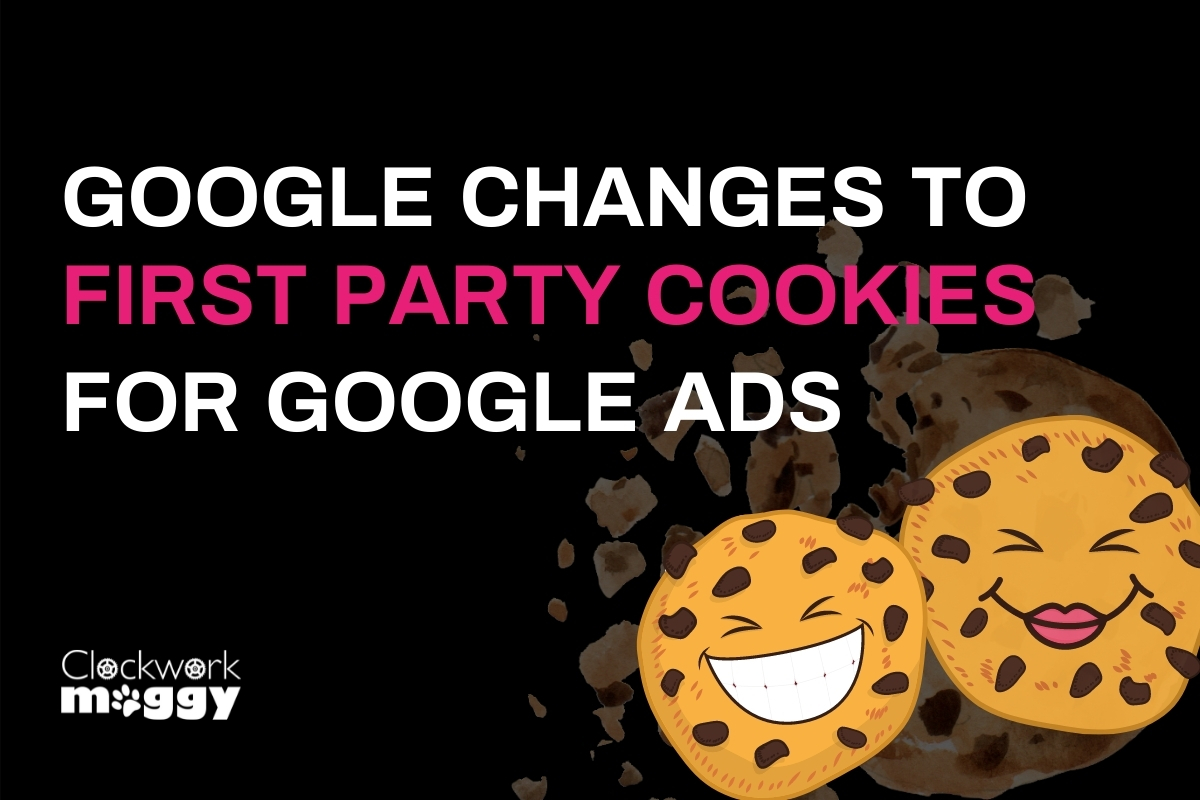If you do Google Ads and are in Europe you may have an email earlier this week letting you know that Google is updating the global site tag (gtag.js) and Google Tag Manager (gtm.js) to set a new first-party cookie on advertisers’ web domains to attribute conversions back to ads. But what exactly does that mean?
Let me help explain:
Starting from the beginning of May, Google Ads will be setting the first-party cookie with a new identity through the Global site tag as well as Google Tag Manager. This means that as a first-party cookie it will be unique and limited to users of a specific website. In simple terms, the first-party cookie is stored directly by the website you visit. They hold limited data about the users and allow the website owners to collect analytical data, language setting and perform other useful functions that provide a good user experience.
For Example:
- When you sign into an eCommerce website, such as Amazon, the browser will send a request, and the browser will then save the data file to the user’s computer under the amazon.co.uk domain. If first-party cookies were blocked you would have to sign in every time you visit the website, and it would make buying multiple items impossible as every time you added something new to the cart, it would reset.
Previously to the change Google, like most other websites, uses third-party cookies. Similar to first-party cookie third-party cookies work when you shop on Amazon, but unlike first-party cookies, they are not specific to Amazon. This means when you decided not to buy that item you were looking at Amazon will be able to track you, and may decide to send you an email for the item or even serve your specific ads on Google and Facebook for the exact item. Even if you close your browser, the third-party tracking data will still be on their computer. Helping to serve them remarketing ads.
So why did Google change?
Google like many other large tech-companies are aware of their users increasing interest in becoming more private online, so they are taking step towards protecting privacy, which means a heavier reliance on first-party data. There are many changes coming soon from other platforms, as well as operating systems so Google is essentially getting ahead of the curve with this change.
In an effort to create more opportunities for solutions that build on first-party data, Google has announced that they’ll be updating the global site tag and the Google Tag Manager to set a same-site cookie on advertisers’ web domains to help improve how conversions will be attributed back to ads.
From the 1st May, this cookie was enabled, this has allowed for more accurate attribution of conversion, including an instance where a user might engage with more than one of your ads before becoming a customer or filling in your contact form.
What does this mean for your Ads?
Since it initially announced FLoC, Google has recommended that advertisers implement sitewide tag, even if you don’t currently use Google Tag Manager to track conversions, this goes for if you are using Google Analytics Goal imports too.
It’s too early to say how things will really change but you can be sure that Google is working on helping Google Ads advertiser to deepen their first-party data sets through the Global tag. After all, if this change causes advertisers to lose conversions, eventually people will start to move away from Google ads and Google certainly does not want that. It does seem likely that those tags will be the basis for future innovations as FLoC tracking and measurement evolves.
To implement the Global tag on your website for Google ads, you can use the Conversion Linker in Google Tag Manager. To do this follow the step below:
- Set up Google Tag Manager and connect it to your website if you haven’t already
- In your Google Tag Manager container, click Tag and then New
- For the Tag Configuration, select the Conversions Linker tag type.
- For Triggering, Select all pages.
- Save your tag
- Publish the Conversion Linker tag
How do you think this change to first-party will develop, have you seen any changes to your account? For help and advice with your, Google Ads feel free to contact us.

